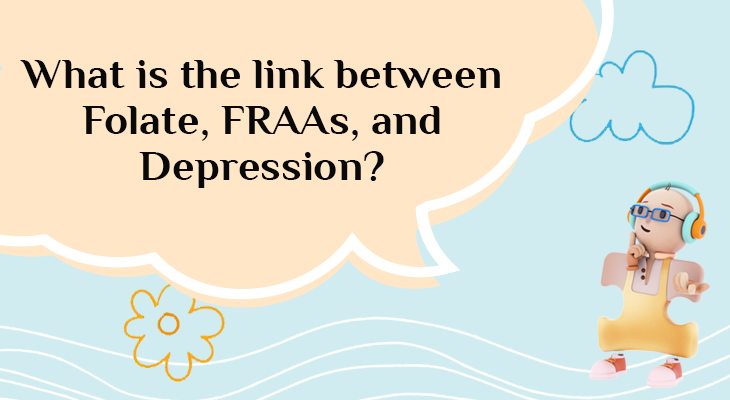
Folate, Folate Receptor Autoantibodies, and Depression
Depressive disorders have become increasingly prevalent this past decade. Characterized as a mental illness, depression is defined as long-lasting periods of depressed mood and diminished interest or pleasure. According to the Diagnostic and Statistical Manual of Mental Disorders, Fifth Edition (DSM-5), major depressive disorder (MDD) consists of symptoms such as mood changes, loss of interest or pleasure in activities, decreased energy levels, changes in appetite and weight, and feelings of worthlessness that persist for over a period of two weeks or more. This condition affects many aspects of life, including relationships, work and academic performance, and overall quality of life.
Globally, depression ranks as the leading cause of disability and is a major public health concern. It is estimated that 5% of adults suffer from depression, equating to approximately 280 million individuals. Sadly, depression is also strongly associated with suicide. It is estimated that over 700,000 people die annually from suicide.
Depressive disorders have an impact that extends well beyond individual suffering. They affect families, communities, and society as a whole. The prevention and management of depressive disorders have become a paramount global public health priority and much research is dedicated to finding adequate treatments. Unfortunately, depression is a complicated disorder that can involve both biological and environmental factors.
One interesting aspect that has been tied to depression is the role of vitamin B9 (folate).
Folate seems to play many crucial roles that are implicated in depression. This includes the following:
- Neurotransmitter synthesis: Folate is involved in the synthesis of neurotransmitters, including serotonin, which plays a key role in mood regulation. Low levels of serotonin have been associated with depression, and adequate folate levels are necessary for maintaining optimal serotonin levels.
- Homocysteine metabolism: Folate is also involved in the metabolism of homocysteine, an amino acid. Elevated levels of homocysteine have been linked to an increased risk of depression. Folate helps convert homocysteine into other compounds, and adequate folate levels may help keep homocysteine levels in check, potentially reducing the risk of depression.
- Epigenetic mechanisms: Folate is involved in epigenetic processes, which regulate gene expression. Epigenetic changes can influence various aspects of brain function, including mood regulation. Changes in gene expression related to folate metabolism have been implicated in depression, and adequate folate levels may help support healthy gene expression in the brain.
- Neuroprotection: Folate has antioxidant properties and helps protect against oxidative stress, which can damage brain cells and contribute to depression. By reducing oxidative stress, folate may help protect the brain from damage and support overall brain health.
- Methylation reactions: Folate is involved in methylation reactions, which are essential for various biochemical processes in the body, including neurotransmitter synthesis and DNA repair. Dysregulation of methylation processes has been implicated in depression, and adequate folate levels are necessary for maintaining optimal methylation reactions.
Clearly, proper folate is important for healthy brain function and mental health. Another recent finding that has garnered interest is the discovery of folate receptor autoantibodies in those diagnosed with depression. The relevance here may be that folate may not be able to be properly transported into the brain, causing what has been termed cerebral folate deficiency syndrome. The presence of folate receptor autoantibodies has been shown to render folate receptor alpha (one of the main transporters of folate into the brain and more specifically, the choroid plexus) dysfunctional. If this receptor is dysfunctional then folate cannot be transported into the cell thereby causing a type of folate deficiency. This condition, however, may be assisted with the administration of a reduced folate, such as folinic acid or l-methylfolate. These types of reduced folates may be able to be transported via an alternate folate receptor known as the reduced folate carrier. This may hold promise for those that have folate receptor autoantibodies. Folate receptor autoantibodies may be screened with the use of the FRAT® test.
While folate is important for mental health, including the prevention and treatment of depression, it’s essential to address depression comprehensively, considering other factors such as lifestyle, environment, genetics, and other nutritional deficiencies. As with any medical condition it is critical to contact a medical professional for consultation, diagnosis, and treatment.



